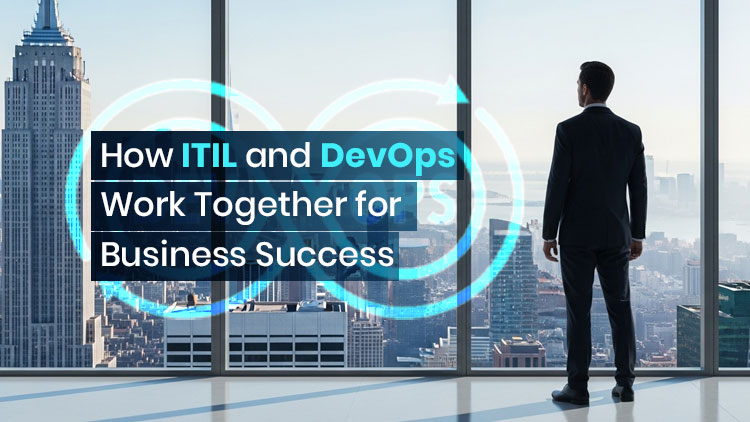
How to Choose the Right Certification for Your Career Path

Introduction
In today’s competitive employment market, professionals must make conscious efforts to distinguish themselves. Obtaining a certification provides formal recognition of knowledge and dedication in a certain field. A carefully chosen certification not only certifies professional competence but also boosts credibility, increases employability, and promotes long-term career stability.
When linked with career goals and industry criteria, it can open up new options for growth, increase earning potential, and indicate a long-term dedication to professional development. According to global salary surveys, certified professionals often earn 20–40% more than their non-certified peers in IT, project management, and cybersecurity.
Advance your career with VERSAtile Reads. Select the certification that drives your success.
The Importance of Certifications in Today’s Professional Landscape
Before choosing a certification, it is critical to understand its importance in the present professional scene. Certifications provide formal verification of knowledge, giving individuals a competitive advantage in an increasingly congested employment market.
Employers across industries value recognized qualifications because they demonstrate specialty as well as a commitment to continued professional development. For example:
- IT Professionals with cloud or cybersecurity certifications often see a salary boost of $15,000–$20,000 annually compared to peers without certifications.
- Project Managers with PMP can earn up to 25% more than non-certified project managers.
- Cybersecurity Experts holding CISSP can command six-figure salaries, often exceeding $120,000 annually.
The Impact of Choosing the Right Certification
Certifications are a strategic investment in long-term professional development. An ill-suited pick might result in additional expenses and wasted work, whereas a correctly chosen certificate can greatly improve professional opportunities, broaden career prospects, and increase earning potential. The correct certification not only enhances employability but also establishes credibility and presents an individual as a formidable competitor in their profession. Furthermore, certificates can act as a catalyst for advancement within an organization, allowing people to gain promotions, take on more responsibilities, or migrate into areas with higher demand and growth potential.
Aligning Certifications with Career Objectives
The certification you pursue should align with your short-term, medium-term, and long-term employment goals. While some professionals determine their ambitions early in their academic careers, others only gain clarity after trying out numerous professions or industries. The timing of this insight is less crucial than ensuring that your selected certification is aligned with your future goals. A certificate in the chosen field might be a useful bridge for those looking to change careers. Professionals looking to develop in their present sector might explore certificates that expand their knowledge or prepare them for specific roles.
Staying Aligned with Industry Trends
Staying current with industry trends is critical to ensuring that the certification you pursue remains relevant and recognized by employers. Technological improvements, legal regulations, and altered business practices all contribute to quick changes in market demand. Choosing an obsolete or poorly aligned credential can impede job advancement, whereas an up-to-date certification improves employability and exhibits adaptability.
To determine which certifications hold the greatest weight, professionals should continuously follow sector-specific trends through research, industry publications, and attendance at conferences, seminars, and webinars. Certifications in sectors such as artificial intelligence and cybersecurity, for example, are becoming increasingly popular in information technology, but credentials that represent modern processes and practices continue to be highly valued in project management. Anticipating upcoming requirements, such as those related to compliance standards or innovations, can provide a competitive advantage, especially when such changes are not yet widely reported.
Evaluating Time and Financial Commitments
Pursuing a certification necessitates careful consideration of both time and financial resources. Programs vary greatly in duration, with some designed to be completed quickly and others requiring persistent work over months or even years. To avoid conflicts or delays, you must assess your availability and schedule the certification around your work and personal duties. Financial planning is also vital because expenses can include study materials, practice tests, courses, and other preparatory resources in addition to examination and application fees. Certain certificates may also need practical experience, mandating more time spent in the field or in relevant professional contexts. By accurately assessing your budget, time constraints, and resource requirements, you can ensure that the certification process is rewarding rather than a source of stress.
Balancing Theoretical Knowledge and Practical Application
Certifications vary in their emphasis, with some focusing on academic understanding and others on practical, hands-on learning. The best solution is determined by both individual learning preferences and profession-specific criteria. In technical professions such as engineering or software development, certifications that combine practical training with conceptual understanding are especially significant because they provide workers with the abilities needed to apply knowledge effectively in real-world circumstances. Key considerations include:
- Theoretical Depth: Offers solid conceptual foundations, making it appropriate for research or strategy-oriented professions
- Practical Exposure: Develops hands-on skills, preparing you to solve operational and technical problems.
- Balanced Approach: Combines theory with practice, ensuring you can both understand and apply advanced concepts.
- Industry Alignment: Select certifications that correspond with the demands of your job, such as IT, project management, or engineering.
Maintaining Motivation and Discipline
Earning a certification might be difficult, but consistent motivation is necessary for success. Defining clear targets and recognizing modest accomplishments promotes progress and keeps focus. Building supportive relationships with peers and mentors promotes responsibility and encouragement along the way. Creating a systematic study schedule that combines preparation, practice, and personal duties encourages consistency and resilience, allowing candidates to efficiently manage problems. Furthermore, constantly monitoring progress toward study goals fosters accountability and self-awareness while offering the opportunity to tweak tactics and improve performance. This technique improves individuals’ understanding of their personal strengths and areas for progress, allowing them to take a proactive approach to their development and cultivate abilities that enable continual learning.
In-Demand Certifications with Career Opportunities
Project Management
Project management provides excellent career opportunities and is highly regarded across industries, particularly among individuals who hold certifications such as the Certified Associate in Project Management (CAPM) and Project Management Professional (PMP). The CAPM is designed for newcomers who possess a strong understanding of core project management concepts but little hands-on experience, while the PMP is intended for seasoned professionals, showcasing their ability to oversee complex initiatives and drive organizational achievement.
Information Technology (IT)
CompTIA A+ is commonly regarded as a basic qualification for those starting a career in information technology. It provides candidates with a solid understanding of hardware, operating systems, networking, troubleshooting, and basic security. By passing its two needed tests, ambitious professionals can demonstrate their readiness for roles such as help desk technician, support specialist, or service desk analyst, preparing them for a variety of entry-level IT opportunities.
Microsoft Certified: Azure Fundamentals (AZ-900) is an excellent starting point for both beginners and business professionals interested in cloud computing. It covers key ideas, service models, pricing, governance, and security, as well as providing a basis for additional Azure certifications and roles like systems administrator or cloud support associate.
AWS Certified Cloud Practitioner is an entry-level certification for non-technical workers interested in learning about cloud computing. It covers the fundamentals of AWS services, billing methods, cloud concepts, and security principles, making it a good starting place for anyone looking to pursue further AWS certifications or careers like cloud support technician or entry-level solution architect.
Cybersecurity
CompTIA Security+ serves as a foundation in cybersecurity, confirming abilities in risk assessment, protection of cloud, mobile, and IoT environments, compliance with industry regulations, and effective handling of security incidents, making it valuable for those beginning their careers in the field. Earning this certification qualifies applicants for a variety of tasks, including system and security administration, auditing, engineering, cloud services, and software development.
(ISC)² offers the Certified Information Systems Security Professional (CISSP), a top cybersecurity certification. It validates advanced competence in information system security and displays the ability to create, execute, and manage comprehensive security programs. The CISSP is aimed at experienced professionals and offers doors to senior-level positions such as chief information security officer, security engineer, senior consultant, security administrator, and information assurance analyst, making it an important certificate for career growth in the sector.
Get Certified with VERSatile Reads
Whether you are beginning your journey in IT, advancing into project management, or pursuing a career in cybersecurity, earning the right certifications can transform your career—and your paycheck.
With VERSAtile Reads exam prep resources, including Exam Cram Notes and Practice Questions, you can prepare confidently and effectively for today’s most popular certifications. Our resources are designed to maximize exam success while saving you time and effort.
Conclusion
Choosing an appropriate certification is an important step in professional development and job advancement. A credential that meets industry requirements improves employability, promotes candidacy for promotions, and displays a willingness to take on more tasks. Although attaining certification may require significant effort and devotion, the knowledge and recognition earned frequently lead to increased possibilities, higher earning potential, and long-term career stability. Making a conscious and educated decision guarantees that the certification becomes a catalyst for long-term professional success.
FAQs
1. Why should you pursue a professional certification?
A certification provides formal recognition of your expertise, enhances credibility, and makes you more competitive in the job market. It also demonstrates your commitment to continuous professional growth.
2. How do you choose the right certification for your career?
You should select a certification that aligns with your career goals, industry demands, and learning preferences. Consider both theoretical and practical aspects to ensure it supports your long-term professional growth.
3. What factors should you consider before enrolling in a certification program?
You need to evaluate the time commitment, financial investment, and the level of practical experience required. Careful planning ensures the process remains manageable and rewarding.
- Published Date:



